Prevent And Reverse Heart Disease: The Revolutionary, Scientifically Proven, Nutrition-Based Cure
£8.60
Reading books is a kind of enjoyment. Reading books is a good habit. We bring you a different kinds of books. You can carry this book where ever you want. It is easy to carry. It can be an ideal gift to yourself and to your loved ones. Care instruction keep away from fire.
Read more
Additional information
| Publisher | 1st edition (31 Jan. 2008), Avery |
|---|---|
| Language | English |
| Paperback | 308 pages |
| ISBN-10 | 9781583333006 |
| ISBN-13 | 978-1583333006 |
| Reading age | 18 years and up |
| Dimensions | 15.14 x 2.13 x 22.83 cm |

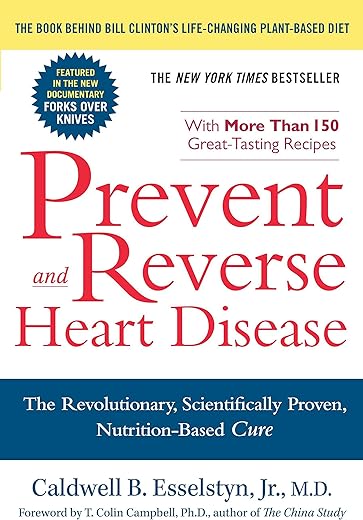
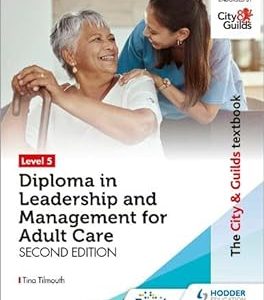
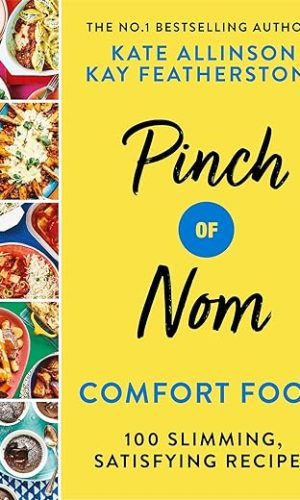
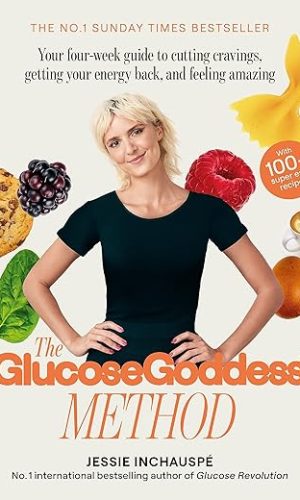

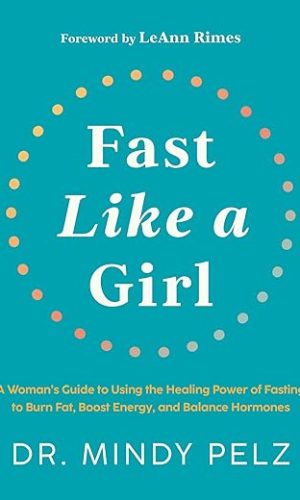
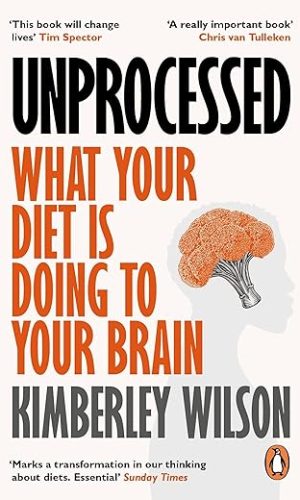

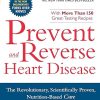
by JH
good informative book re healthy eating and lifestyle ,well worth a read
by Amazon Customer
Great read thank you
by Chimpeth
Having been tested for high cholesterol I decided to take control of my own health rather than leave it to doctors and medication.
I spoke to my GP first and he recommended that it would be sensible to try and reduce my cholesterol through diet and exercise first. This is normally all you need to do unless you have an actual medical condition such as inherited high cholesterol.
In order to see a real and long-term change in levels, you must have a 2nd blood test after 12 months – anything sooner is not going to be reliable.
I have been following the advice in this book for 6 months now and I can honestly say that it is not as difficult as you may think. Yes it does take about 1 month before you stop craving fats, fish and meat but like anything, once you get into a routine it becomes easy. The full feeling I used to get from a big roast turns out to be mostly bloating – something I never feel now. I now feel full and satisfied after a good meal but with no 2 hour belly pain!
I have always enjoyed fruit and veg anyway so it was easier for me than it may be for a true meat lover, however the recipes in the book are great and you soon start to create your own or modifying things you used to cook so that they are now fat free and vegan such as your favorite curries.
Do not think of this book as a diet. A diet suggests an extreme and temporary change in foods in order to achieve a superficial goal such as “a beach body”. This short-term mindset is not good for you and will not give you the results you wanted anyway – consistency is what gets you the fitness, body shape and health that you dream of; so change the way you think about food and your body and let this book help you achieve that change.
Yes I will die one day and it could be tomorrow for all anybody knows, but I am in my 30s and I can’t think of anything worse than being in my 60s, dying in a hospital bed and having to tell my wife and son that I could have avoided heart disease if I had just taken this simple advice about food. I can’t stop cancers and freak accidents but I can take responsibility for what I eat and how I treat my body.
If anybody is interested I will update this review in 6 months time with my blood test results that will show if the advice is working. Visibly I am much slimmer than 6 months ago and I feel more energetic, but this is just an added bonus – my real interest is in how this is changing me on the inside so I have also agreed to have a full body composition and fitness test at a London University.
Incidentally, the author of this book is a practicing physician who you can make an appointment to see at a real hospital – not just a a self righteous “vegan warrior” hippy with an untested theory and a book to sell.
by David Richards
Really interesting book if you want to loose weight and attempt to reverse heart disease.
No problem with the content of the book but I didn’t realise I was buying a second hand copy, it is a bit grubby.
by Betty Russell
This book was for my husband and he is still reading it & is waiting for a pacemaker to be fitted but he says what he has read, is informative.
by Suerte
My cardiologist sent me for a CT coronary angiogram which put me in the top few percent most likely to have a heart attack.
I found this book on the net and have followed the diet exactly for 10 months. In the first 6-7 months I lost another 44 pound and have held that weight rock steady for the last three months. My total cholesterol has gone from 7.9 down to 4.2 and the LDL from nearly 6 to 2.6. Not quite enough with established artery disease, but done without any statins and to the amazement of my cardiologist who said it would not happen or at least said I wouldn’t be able to follow the diet.
The author is a retired general surgeon who on a theory asked his cardio colleagues to permit him to try his dietary lifestyle change on willing cardio patients, all of whom had had heart attacks or bypasses etc. After six months (I think) seven knew they couldn’t cut the diet and returned to standard cardio care. One of the remaining died of an arrythmia that was unrelated to the diet. The remaining 16 were all alive without a single further cardiac event 12 years later (and beyond). Of the 7 that had gone back to standard care all had had some kind of cardiac event including death.
It is not sufficiently explanatory to call this simply a vegan diet. I could eat lots of olive oil, refined flour, white bread, white rice, white pasta, cakes, peanuts, avocado, fake meats, refined breakfast cereals, sugar etc. etc. and call myself a vegan’ however, I would not be on Dr Esselstyn’s whole-food plant-based diet.
This book was only the kickstart for me. I have constantly looked at what I am eating and refined it to be more and more in line with the books proposals and to cover as many of the bases as possible (eg. don’t spike blood sugar, don’t eat too many wholegrains which will change the omege 6 to 3 ratio).
There are a few doctors who also propose similar diets for heart disease, but the only other one I give any real integrity to is Dean Ornish. The latter advocates some Omega 3 from fish oil and other lifestyle changes. Both diets have the facility for a milder version for those without heart disease, Dean Ornish offer ‘levels’ of the diet and Esselstyns son offers a more lenient version
Edit. 7 April 2019: A year after following this very low fat diet to the letter I slowly became side-tracked. I read a lot about high fat (low carb) ketogenic diets and how these diets were a solution to the inflammation that high carb plant-based diets allegedly caused. A little research seemed to indicate that most diabetics die in heart attacks and the two issues of heart disease and diabetes often go/progress hand in hand. I bought a Contour Next blood glucose meter and have tested my blood glucose levels at 45, 60 and 90 minutes after most meals for the last three and a bit years with the aim of getting these postprandial (after-eating) blood glucose levels down. Eventually I couldn’t do it without cutting carbs and adding significant fat, albeit mostly in the form of avocado and nuts (still no added oils). I also ate only twice a day: The first meal carbs and the last meal mostly avocado and nuts. Although I had lower postprandial blood glucose, my morning fasting levels slowly rose to approaching prediabetic levels.
I will cut a long story short. I was confounded for a couple of years listening to the arguments for high fat ketogenic diets and low fat plant-based ones: very difficult when usually the promoters are selling books or supplements or trying to become famous. So much crap and egos to sift through and most are as bad as each other on both sides and hard to trust any of them. What settled it for me was a recent 50 minute video I saw on youtube. Just go to youtube and search ‘ Denise Minger – In defence of low fat’. Denise Minger is or was the poster girl of high-fat ketogenic diets and a couple of years ago appraised a ton of low fat diets and then seemed to rip to pieces the low fat argument for diet; however, in this latest video she now admits a flaw in her previous assessment. Her previous appraisal was of low fat studies in the last 50 years. In the last 50 years a low fat diet has been anything with up to 30% of the daily calories coming from fat and these according to Denise Minger do not work for disease; however, she since went further back and looked at the research dating from the 1930’s where low fat diets were closer to 10% daily calories from fat and these diets appear or show to have arrested or reversed heart disease, diabetes and MS. So in a nutshell: modern day definition of a low-fat is simply not low enough.
For myself I am back on the very low fat diet (15% or less calories from fat or oils). I do not know for certain, but it might be more important than being strictly plant-based. My morning fasting blood glucose quickly returned to what it was before my excursion into eating more fat. People pushing ketogenic diets dismiss this as unimportant physiological insulin resistance – but there is no evidence that it is unimportant or even really what the long term effects of keto will be: and they have some of the most dubious people proposing it.
Significant fat in my blood does not seem to be good or the way to go. The blood vessels in our capillary beds are so thin that red blood cells can only pass through in single file and white blood cells often have to squish themselves to get through. After eating significant fat the circulation often comes to a standstill in the capillary beds until the fat is reduced. After eating carbohydrates the peak of blood glucose in the blood is usually about 45 minutes after which insulin usually has it under control and gets it right back down to base levels within two hours. The fat in the blood from a high fat meal however, might not peak in the blood for five or six hours and might take another five or six to return to previous levels. And significant fat in the blood seems to interfere with the bodies normal ability to clear those blood glucose levels too, keeping them high for several hours with the body responding by pumping out more insulin to try and get them down. It doesn’t appear to be a good mix. There are a couple of short youtube videos titled “Blood flow after a fatty meal 1” and “Blood flow after a fatty meal 2”. They are well worth a look.
The difference between doing just a little bit of daily exercise and doing absolutely nothing also seems enormously important on several levels. If you are not exercise orientated then just to do five minutes of something that ends up raising your heart rate significantly, enough to just get you out of breath a bit. It is the difference between keeping that heart muscle toned or it degenerating. Exercise kickstarts all sorts of physiological processes that I read and failed to fully understand, but knew enough to see they were important. And a little bit of exercise raises mood and leads to the desire to be a bit more active. Swimming, yoga, brisk walk, three minutes on a treadmill, just raise the heartbeat momentarily, just enough to get a bit out of breath. I leave the vein popping, I’m- gonna-vomit exercise to the youngsters.
The other factor that seems likely beneficial to people like myself with CAD is not to be eating all day, especially late at night and definitely not fat late at night. I try to eat all my calories within a six hour window (or less) that ends no later that 6pm every day. It looks like our bodies like to repair themselves while we are safe and asleep. The subject is ‘autophagy’ if anyone wants to look into it further and I would recommend a book by a Dr Valter Longo called ‘The Longevity Diet’. He can also be found in interviews on youtube.
There is a bit of a fashion at the moment to eat one meal a day. A pretty big meal if you goal is not to lose weight. The advantage is to not be spiking blood glucose and insulin all day long. I have also practised this one meal a day after I became adapted to eating in six hours or less. I did notice that not eating for 22 hours and then eating a high carb plant-based meal sent my blood glucose through the roof. Perhaps my insulin producing pancreas was asleep after 23 hours of no activity and was caught on the hop. The solution to this is to eat a small amount of carbs (like half a banana) or to eat significant protein 30 minutes before the main carb meal. Protein disproportionaly stimulates insulin. Training myself to eat my one meal earlier and earlier in the day has also produced better results with blood glucose coming down earlier and quicker. Either way, eating after 6pm has to be a rarity because it appears humans do not clear glucose from the blood into the tissues as quickly later – there are biological circadian rthymn reason for this.